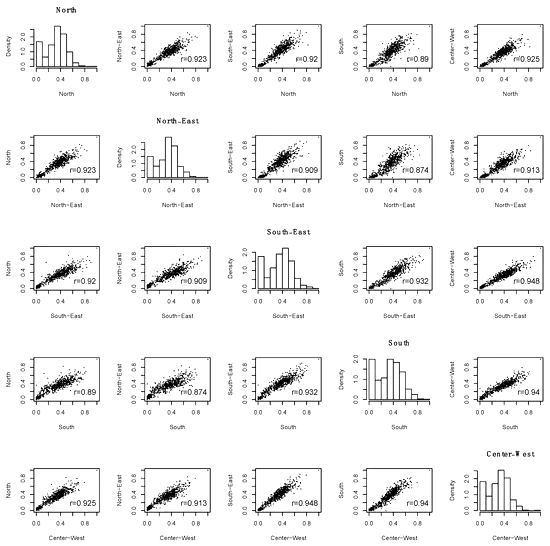 Hub scores - each variable acroos the five regions (Brazil)
Hub scores - each variable acroos the five regions (Brazil)
The prevalence of health problems during childhood and adolescence is high in developing countries such as Brazil. Social inequality, violence, and malnutrition have strong impact on youth health. To better understand these issues we propose to combine machine-learning methods and graph analysis to build predictive networks applied to the Brazilian National Student Health Survey (PenSE 2015) data, a large dataset that consists of questionnaires filled by the students. By using a combination of gradient boosting machines and centrality hub metric, it was possible to identify potential confounders to be considered when conducting association analyses among variables. The variables were ranked according to their hub centrality to predict the other variables from a directed weighted-graph perspective. The top five ranked confounder variables were “gender”, “oral health care”, “intended education level”, and two variables associated with nutrition habits—“eat while watching TV” and “never eat fast-food”. In conclusion, although causal effects cannot be inferred from the data, we believe that the proposed approach might be a useful tool to obtain novel insights on the association between variables and to identify general factors related to health conditions.